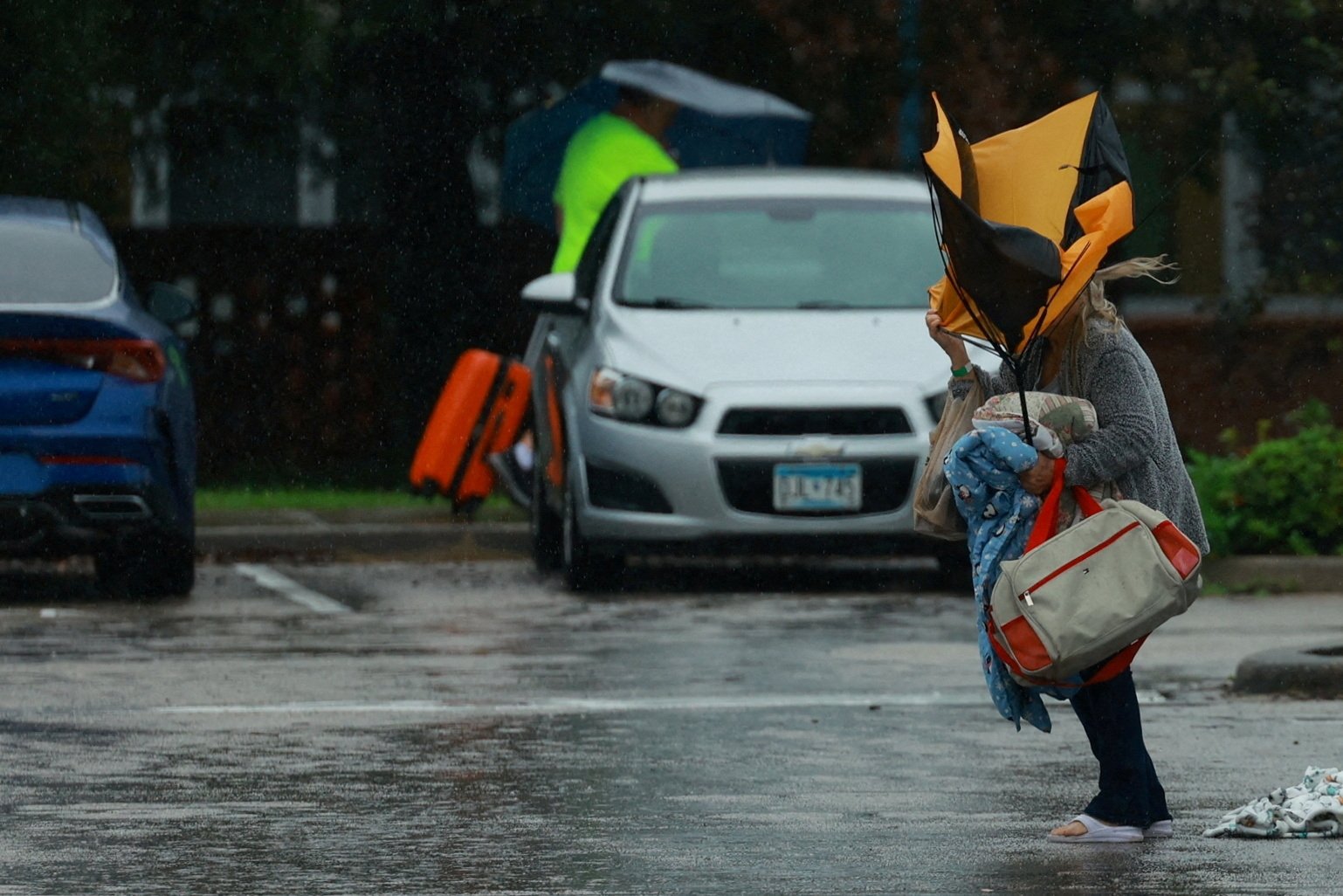© Turkuvaz Haberleşme ve Yayıncılık 2025
Hurricane Milton wreaked havoc on Florida's coast Wednesday, triggering tornadoes and flash floods just two weeks after the state was hit by another devastating storm.
Nearly 3 million Florida homes and businesses were without power after the weather front made landfall as a Category 3 storm near Siesta Key on the U.S. state's western coast.
Milton triggered tornadoes before its arrival, with unconfirmed reports of multiple fatalities after one twister struck a retirement community on Florida's east coast.
President Joe Biden was briefed on the "initial impacts" of Milton, the White House said, as responses from Democrats and Republicans are likely to be closely scrutinized with just four weeks until the tightly contested U.S. presidential election.
Milton weakened to a Category 1 storm but was still registering powerful winds of up to 150 kph (90 mph) on Thursday morning, according to the National Hurricane Center.
"Very heavy rains and damaging winds continue across much of central Florida. Flash flood emergencies remain in effect," the NHC warned.
Tidal surges were expected to inundate western Florida's heavily populated and low-lying Gulf Coast.
At least 2.8 million households and businesses had lost power in the state by late Wednesday, according to tracker poweroutage.us.
Milton is expected to tear inland, with tourist hub Orlando – home to Disney World, which has closed for the storm – in its path.

Scientists say extreme rainfall and destructive storms are occurring with greater severity and frequency as temperatures rise due to climate change. As warmer ocean surfaces release more water vapor, they provide more energy for storms as they form.
In cities up and down Florida's western coast, the wind howled furiously and torrential rain fell as people took shelter wherever they could.
In the city of Sarasota, near Siesta Key, gusts of wind blew panes of glass from buildings on the waterfront.
The streets were deserted and trees swayed almost horizontal, barely able to withstand the wind. Businesses were shuttered and sandbagged.
On a wooden board fixed against a window of an old red brick building, someone wrote: "Be kind Milton."
The airports in Tampa and Sarasota were closed until further notice.
Just before landfall, Florida Governor Ron DeSantis urged state residents who had not evacuated to "stay inside and stay off the roads," adding: "Flood waters and rushing storm surge are very dangerous."
Milton struck just two weeks after another major hurricane, Helene, devastated Florida and other southeastern states, with emergency crews still working to provide relief.
With at least 235 people killed, Helene was the second-deadliest hurricane to hit the continental United States in more than half a century after Katrina, which ravaged the state of Louisiana in 2005, claiming nearly 1,400 lives.
Randy Prior, who owns a pool business, says he planned to ride out Milton at home after recently toughing out Hurricane Helene, which flooded Florida before wreaking havoc across remote areas further inland such as western North Carolina.
"I am nervous. This is something we just went through with the other storm – ground saturated, still recovering from that," Prior, 36, told AFP.

U.S. presidential candidate Donald Trump has sought political advantage by falsely saying storm aid is channeled away from residents, many of whom are supporters of his Republican Party and toward migrants.
At the White House on Wednesday, President Biden slammed Trump's "onslaught of lies."
"There's been a reckless, irresponsible and relentless promotion of disinformation and outright lies," Biden said in angry remarks.
Vice President Kamala Harris, who is taking on Trump at the polls on Nov. 5, echoed Biden's criticisms in a separate telephone interview with CNN.
"It is dangerous, it is unconscionable, frankly, that anyone who'd consider themselves a leader would mislead desperate people to the point that those desperate people would not receive the aid to which they are entitled," she said.
